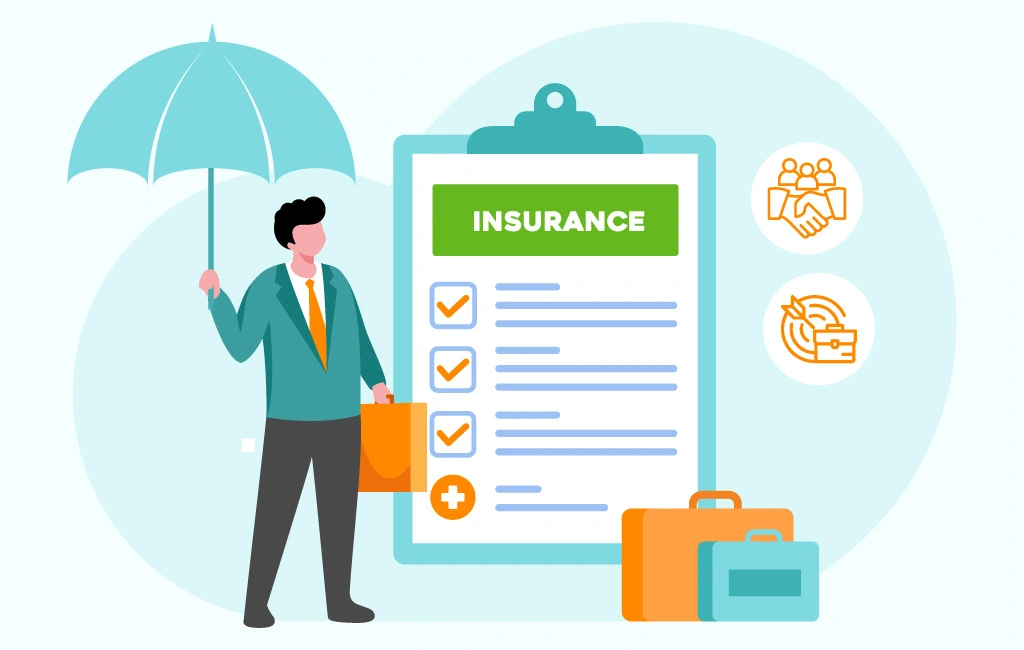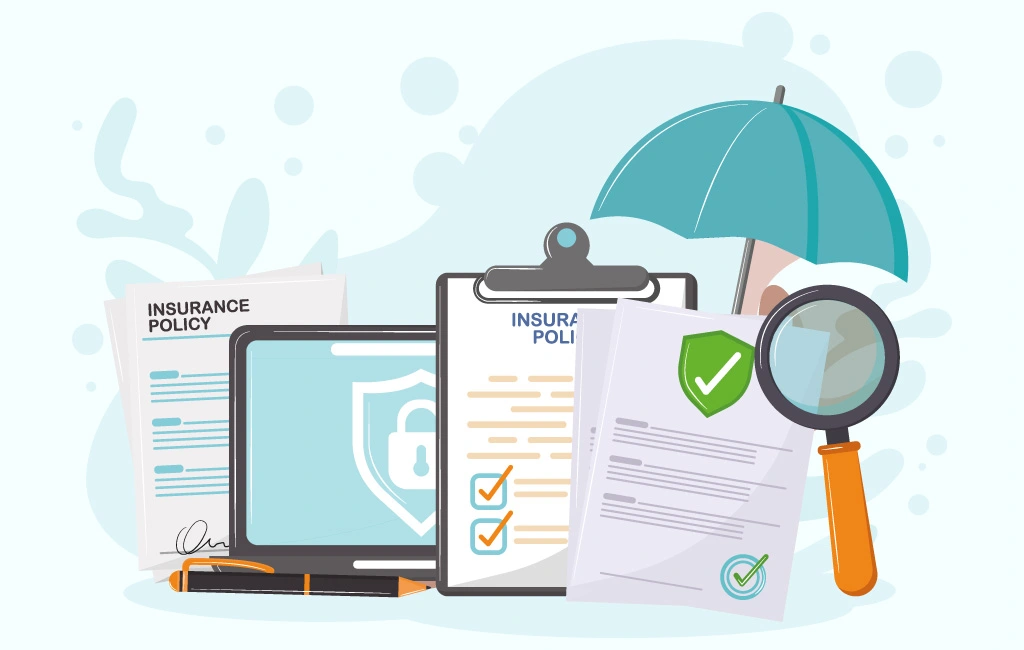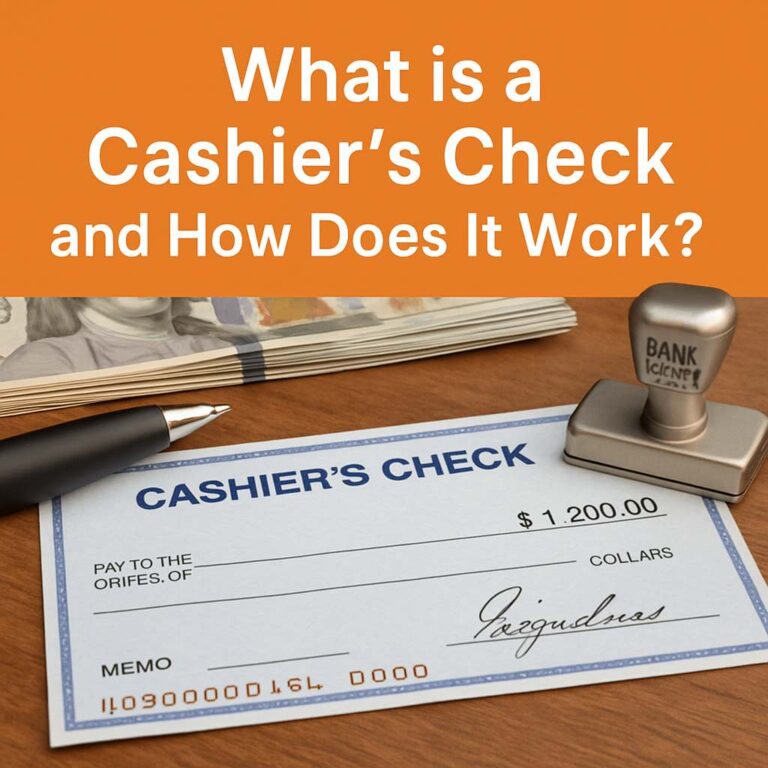Starting and running a business is an exciting journey. Whether it’s your first time launching something or you’ve been doing this for years, there’s always that thrill of building something of your own. But let’s face it—there are risks too. From unexpected accidents to lawsuits or even natural disasters, there are tons of things that can throw a wrench into your plans.
That’s why understanding the 5 essential reasons why your business needs insurance is so important. Business insurance isn’t just a nice-to-have. It’s one of those foundational pieces that can make or break your business in the long run. It gives you security, confidence, and peace of mind—so that you can focus on what matters most: growing your business.
In this article, we’ll talk about what business insurance is, the different types out there, and why every entrepreneur (yes, even freelancers and side hustlers!) should take it seriously. Even if insurance has always felt confusing or overwhelming, don’t worry. We’ll keep it simple, straightforward, and 100% beginner-friendly.
Understanding Business Insurance
So, what is business insurance exactly? At its core, business insurance protects you from losing money if something bad happens to your business. That “something” could be a fire, a theft, a lawsuit, a cyberattack, or even an employee getting injured on the job.
When you have the right insurance, the policy will help pay for things like legal fees, repairs, medical bills, or lost income. Without it, you’d be stuck paying those bills out of pocket—which, for most business owners, would be incredibly difficult.

If you’re a small business owner, you especially need to think about small business insurance. Smaller companies don’t usually have big cash reserves to fall back on. Even a small accident or unexpected cost could put you out of business. Insurance helps reduce that risk and makes your business more stable in the long run.
And here’s the thing: business insurance isn’t just for big corporations. Freelancers, consultants, online store owners, and even part-time gig workers can benefit from it. If you’re doing business in any way—selling products, offering services, hiring people—it’s something you should seriously consider.
Types of Business Insurance
Okay, so now you know what business insurance is. But what kind do you actually need? There are several types of business insurance, and the right ones for you will depend on what you do, how you work, and what risks you face.
Let’s go through some of the most common ones in plain English:
General Liability Insurance
This is the go-to starting point for most businesses. It protects you if someone gets hurt at your business location or if you accidentally damage someone else’s property. It also helps cover legal costs if someone sues you. For example, if a customer slips on a wet floor in your store and breaks their leg, general liability insurance would help pay their medical bills and your legal defense.
Commercial Property Insurance
If you own a storefront, office, warehouse, or even expensive equipment like computers or machinery, you need this. It covers your building and the stuff inside it in case of fire, theft, or other disasters. Even home-based businesses can benefit if they use special equipment that wouldn’t be covered under a personal homeowners insurance policy.
Workers Compensation Insurance
If you have employees, this one’s a must. Workers compensation insurance helps cover medical expenses and lost wages if someone gets injured on the job. It also protects you from lawsuits. In most places, it’s legally required—even if you just have one part-time worker.
Professional Liability Insurance
Also known as “errors and omissions” insurance, this is important for service-based businesses. It covers you if a client claims your advice or service caused them harm. Think lawyers, consultants, designers, accountants, and anyone offering expertise or advice.
Business Interruption Insurance
What if a fire shuts your business down for two months? Or a flood ruins your inventory? Business interruption insurance helps replace lost income during that time. It covers things like payroll, rent, and other operating expenses while you recover.
Cyber Liability Insurance
If your business handles customer data, takes online payments, or uses software to manage operations, you should seriously consider this one. It protects you in case of a data breach, hack, or cyberattack.

These are just a few examples, but they cover a lot of ground. You can mix and match different types of business insurance to create a policy that fits your exact needs.
5 Essential Reasons Why Your Business Needs Insurance – Explained
Now that we’ve covered the basics, let’s get to the heart of it. Why is this such a big deal? These are the 5 essential reasons why your business needs insurance, and we’re going to break each one down in a simple, relatable way.
1. To Protect Your Business from Financial Losses
Let’s start with the obvious. Accidents and disasters can be expensive. Imagine a pipe bursting in your office overnight and ruining your equipment. Or a thief breaking in and stealing your inventory. Or even worse—your business being sued and facing a huge payout.
Without insurance, you’d be responsible for all those costs. And depending on the damage, that could be enough to put you out of business.
Insurance steps in to help pay for those expenses. It softens the financial blow and gives you breathing room. You won’t have to drain your savings or take out loans to cover unexpected costs. It’s not just protection—it’s a smart financial strategy.
2. To Shield Against Liability Claims
Even if you’re careful and run your business with integrity, there’s always a chance that someone could file a lawsuit. Maybe a customer trips and falls. Or a product causes an allergic reaction. Or a client says your advice caused them to lose money.
These are all situations where liability insurance for business would kick in. Legal fees alone can be astronomical, even if the case is minor or turns out to be false. And if a court rules against you? You could owe thousands—or more—in damages.
Liability insurance helps cover legal costs, court settlements, and even PR help to manage damage to your brand. You don’t need to be reckless to get sued. Sometimes, it’s just part of doing business. Insurance keeps you protected.
3. To Ensure Employee Security and Legal Compliance
If you’ve hired employees—even if they’re part-time or seasonal—you have a responsibility to keep them safe. Workers compensation insurance ensures that if someone gets hurt at work, their medical costs are covered and they’re not left without income.
It also protects you. If you don’t have workers comp and someone gets injured, you could be sued for damages, legal costs, and even negligence.

Beyond legal requirements, employee insurance coverage helps make your business more attractive to workers. Health insurance, disability, and even simple accident protection show your team that you care. That leads to better morale, lower turnover, and a stronger company culture.
4. To Maintain Business Continuity in a Crisis
Let’s talk about the big stuff. Fires, floods, earthquakes, power outages, pandemics—you name it. Disasters can strike at any time, and they don’t care if your business is ready or not.
When you have business liability coverage and business interruption insurance, you’re not left to pick up the pieces alone. These policies help keep your business afloat by covering the costs of lost income, paying rent, and keeping your staff paid during a closure or emergency.
Think of it as an emergency plan that helps you keep moving forward, no matter what happens.
5. To Build Trust and Enhance Your Brand Reputation
This one is easy to overlook but incredibly important. Having insurance tells people that you’re serious, responsible, and professional. It shows customers and partners that you’re prepared—and that they can trust you.
This is where brand reputation protection comes in. If something does go wrong (because let’s face it, nobody’s perfect), insurance helps manage the fallout. You’ll be able to respond quickly, make things right, and keep your reputation intact.
In some industries, clients won’t even work with you unless you can show proof of insurance. It’s often a requirement in contracts. Being insured opens doors, builds credibility, and sets you apart from the competition.
How to Choose the Right Insurance for Your Business
By now, you’re probably convinced that business insurance is a must. But with so many options out there, how do you choose the right one?

Start by understanding your risks. What kind of business do you run? If customers visit your location, general liability insurance is a good starting point. If you sell products, product liability might be necessary. Offering services or advice? You’ll likely need professional liability insurance. If you have employees, workers compensation is typically required. And if you handle sensitive data or rely on computers, consider cyber liability insurance.
Once you’ve identified the specific risks your business faces, talk to a licensed insurance agent or broker. They can help match your needs with the right policies. Be honest about your business operations—how many employees you have, where you operate, what kind of products or services you offer, and whether your business is growing. The more details you give, the better your coverage can be tailored to you.
It’s also a good idea to compare quotes from different insurance providers. Don’t just look at the price—check what’s included. Pay attention to the coverage limits (the maximum amount the insurer will pay), the deductible (how much you’ll pay out of pocket before insurance kicks in), and any exclusions (what’s not covered). Also consider how easy it is to file a claim and what kind of support the insurer offers when things go wrong.
Think ahead, too. Are you planning to grow your team, launch new products, or open another location? Choose insurance that can adapt with your business over time. A flexible policy now can save you a lot of hassle later.
And don’t be afraid to ask questions. Insurance can be confusing, especially if it’s your first time buying it for your business. Ask your agent or broker to explain anything that’s unclear, and make sure you fully understand what you’re getting.
Choosing business insurance doesn’t have to be overwhelming. With a little planning and the right support, you can find coverage that protects your business and gives you peace of mind.
Expert Tips for Getting the Most Out of Business Insurance
- Review Your Policy Every Year: Your business changes over time, and your insurance should change with it. Update your policy when you move locations, hire new employees, or add services.
- Keep Documentation Organized: Store receipts, contracts, maintenance records, and any communication related to claims. This can make a huge difference when it’s time to file.
- Understand What’s Excluded: Every policy has exceptions. Make sure you know what’s not covered so you’re not caught off guard later.
- Train Your Team: Make sure your employees know how to prevent accidents and handle emergencies. Some insurers even offer discounts for safety training.
- Bundle Policies When You Can: Many insurers offer packages for small businesses. Bundling can save you money and make your coverage easier to manage.

Final Thoughts on Business Insurance
Let’s bring it all together. Business insurance isn’t just another item on your to-do list—it’s one of the smartest moves you can make as an entrepreneur. It gives you the protection, flexibility, and confidence to grow your business without living in fear of the “what ifs.”
We’ve walked through the 5 essential reasons why your business needs insurance, from protecting your finances to boosting your credibility. We’ve also covered the different types of insurance, how to choose the right one, and tips for making the most of your coverage.
Whether you’re a freelancer, a shop owner, or the CEO of a growing company, having the right insurance is a game-changer. It doesn’t just keep you safe—it helps your business thrive.
So take the time to assess your needs, ask the right questions, and invest in coverage that fits your business. Your future self—and your business—will thank you.








